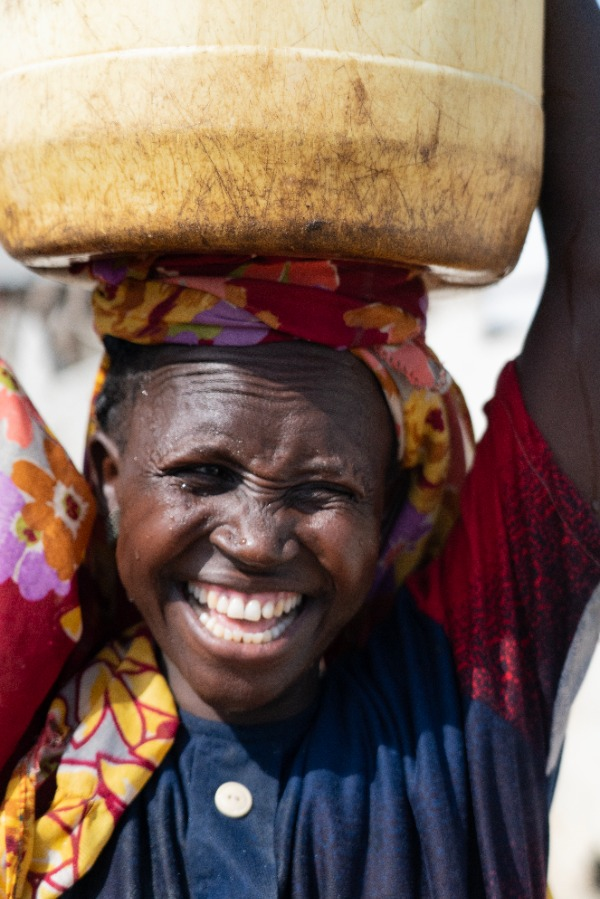Progress Towards Durable Solutions in Abu Shouk and El Salam IDP Camps, 2019
Sudan, 2018
Get MicrodataIdentification
UNHCR_SDN_PROFILING_2019_v2.1
Progress Towards Durable Solutions in Abu Shouk and El Salam IDP Camps, 2019
| Name | Country code |
|---|---|
| Sudan | SDN |
The Government of Sudan and the international community are working together to jointly support durable solutions for Darfurs internally displaced people. The commitment is rooted in the Doha Document for Peace in Darfur (DDPD) from 2011, signed by the Government of Sudan, other major parties to the conflict and the international community, and which sets out the framework for peace in Darfur. The peace agreement and the Darfur Development Strategy (DDS) that followed constitute political commitments to support durable peace and development in Darfur. This pledge has resulted in piloting a durable solutions process in El Fasher in North Darfur.
To reach durable solutions and end displacement, long-term planning based on agreed and jointly-owned comprehensive data is needed. To establish an agreed evidence base, a collaborative profiling approach was adopted that brought actors together to ensure trust and ownership of the results of the profiling exercise. An important aspect of this durable solutions profiling is that it places IDPs centre-stage alongside the two other major stakeholdersthe Government of Sudan and the international communitypermitting the profiling results and recommendations to be owned and signed off by all parties. The durable solutions profiling exercise in El Fasher makes up step two: getting better informed about the displacement affected communities in the five-stage durable solutions process. The survey included 3002 households. It specifically aims to: provide a comprehensive profile of IDPs residing in Abu Shouk and El Salaam IDP camps; develop a better understanding of IDPs vulnerabilities, coping mechanisms, capacities and provide insight into IDPs perceptions and their future settlement intentions; provide a jointly agreed upon data set to help inform durable solutions programming responses; pilot a profiling exercise of displacement and joint durable solutions planning that could be replicated in other Sudan contexts with displaced populations.
Household and individual
Version
v2.1: Edited, anonymous dataset for licensed distribution
Scope
The survey includes the following topics:
- Household main characteristics
- Individual main characteristics
- Education
- Employment information
- Dwelling characteristics
- Health
- Energy utilisation
- Income sources
- Social and community interactions
- Assets ownership
| Topic |
|---|
| Health and Nutrition |
| Health |
| Food security |
| Education |
| Livelihood & Social cohesion |
| Housing, Land and Property |
| Domestic Needs/Household Support |
| Settlement |
| Connectivity |
| Basic Needs |
Producers and sponsors
| Name |
|---|
| Sudanese Government's Joint Mechanism for Durable Solutions |
| Joint IDP Profiling Service |
| Durable Solutions Working Group |
| World Bank |
| Department for International Development |
| Swiss Development Cooperation |
| Cathotlic Relief Services |
| Plan International |
| UNHCR |
Sampling
A sample of 3002 households was collected using a stratified cluster sampling approach. The sample was divided into four strata: IDPs in Abu Shouk camp, IDPs in El Salam camp, non-displaced people living in peri-urban El Fasher and non-displaced inhabitants of urban El Fasher. The four strata were divided into clusters of similar population size, based on a grid developed on a map of the areas. Clusters were selected from each stratum with a uniform probability of selection. The sampling was conducted in this manner, because there was no reliable population data available which would have made sampling probabilities to size possible. All the households in the selected enumeration areas were listed, while 12 were selected for interviews in each cluster in simple random draws. The listing exercise resulted in a significantly lower number of clusters than was planned. To compensate for the lower number of clusters, some of the listed clusters were selected for oversampling. To draw the sample, the listing data was restricted to IDP households in IDP clusters and non-displaced households in the El Fasher clusters. The World Bank calculated the sample and applied the weights to the collected data.
Sampling weights were calculated and applied to each enumeration area depending on its size.
Survey instrument
The questionnaire includes the following sections: household information, household roster, household characteristics, food consumption, livestok, durable goods, wellbeing and opinions, conflict and displacement.
Data collection
| Start | End |
|---|---|
| 2018-05-01 | 2018-07-31 |
| Name |
|---|
| International Organization for Migration |
IOM collected the data during the enumeration and the households survey with the support of community representatives. Specifically, elders and youth representatives assisted in finding enumerators representing the IDP community. This team of enumerators were tasked with selecting households for the enumeration stage of the profiling and administering the household questionnaires. The team of enumerators were trained on the enumeration process and subsequently received a second training on the household survey process. Data was collected during May, June and July 2018.
Data processing
Data was processed and anonymised with recoding and local supressions.
Data Access
Cite as follows:
Sudanese Government's Joint Mechanism for Durable Solutions, JISP, DSWG, World Bank, DFID, SDC, CRS, Plan International (2019) Progress Towards Durable Solutions in Abu Shouk and El Salam IDP Camps. UNHCR microdata library: https://microdata.unhcr.org
Contacts
| Name | Affiliation | |
|---|---|---|
| Curation Team | UNHCR | microdata@unhcr.org |
Metadata production
UNHCR_SDN_2019_Profiling_DDI_v1.0
